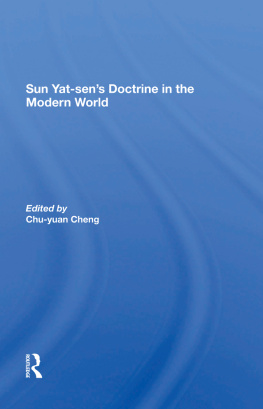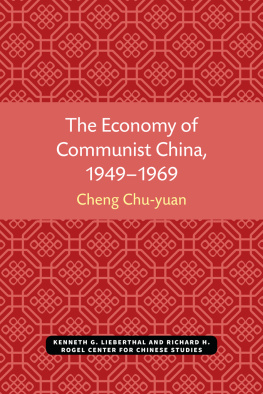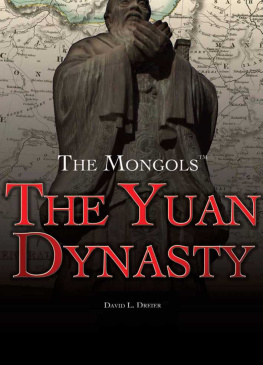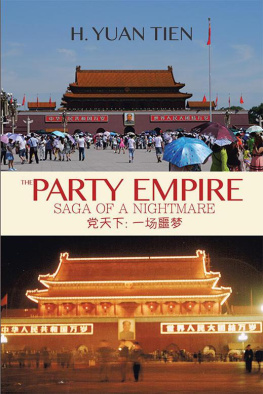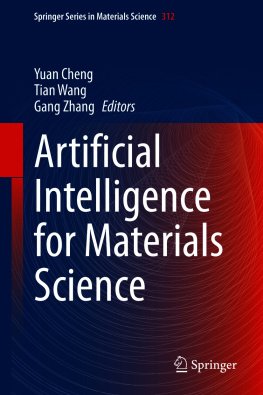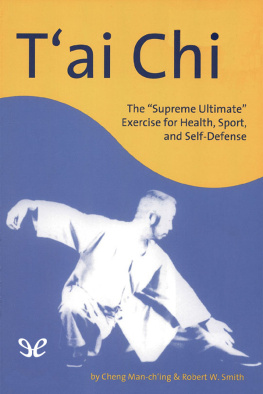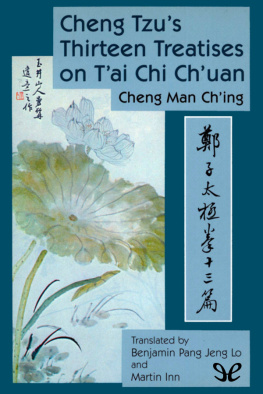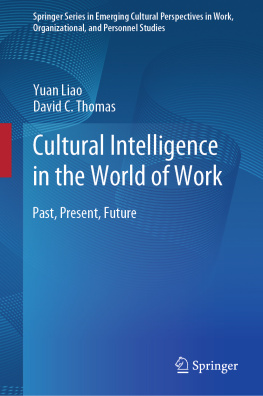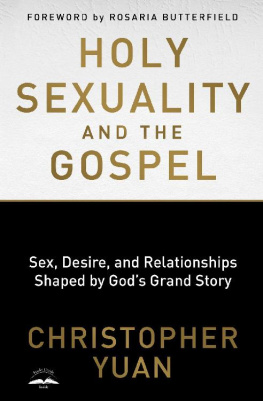Sun Yat-sen's Doctrine in the Modern World
Published in cooperation with
THE SUN YAT-sEN INSTITUTE IN AMERICA
Sun Yat-sen's Doctrine in the Modern World
Edited by
Chu-yuan Cheng
First published 1989 by Westview Press
Published 2019 by Routledge
52 Vanderbilt Avenue, New York, NY 10017
2 Park Square, Milton Park, Abingdon, Oxon OX14 4RN
Routledge is an imprint of the Taylor & Francis Group, an informa business
Copyright 1989 by Taylor & Francis
All rights reserved. No part of this book may be reprinted or reproduced or utilised in any form or by any electronic, mechanical, or other means, now known or hereafter invented, including photocopying and recording, or in any information storage or retrieval system, without permission in writing from the publishers.
Notice:
Product or corporate names may be trademarks or registered trademarks, and are used only for identification and explanation without intent to infringe.
Library of Congress Cataloging-in-Publication Data
Sun Yat-sen's doctrine in the modern world.
Published in cooperation with the Sun Yat-sen
Institute in AmericaPrelim. p.
Bibliography: p.
Includes index.
1. Sun, Yat-sen 1866-1925Political and social
views. 2. ChinaPolitics and government20th century.
3. TaiwanPolitics and government1945
I. Cheng, Chu-yuan. II. Series.
DS777.S875 1989 951.04'1'0924 88-5576
ISBN 13: 978-0-367-28918-8 (hbk)
Since the publication of James Cantlie's and C. Sheridan Jones's Sun Yat-Sen and the Awakening of China in 1912, much has been written about Sun's revolutionary life, but little scholarship has been directed toward his ideas. In spring 1986, when Chinese societies around the world celebrated the one-hundred-twentieth anniversary of Sun's birthday, at a meeting in Chicago some thirty concerned scholars of Chinese studies reached a consensus that a book should be compiled to reinterpret Sun's ideas in the modern world. The Sun Yat-sen Institute in America was entrusted to undertake this project.
In the following six months, twelve scholars in the United States and Europe consented to contribute chapters on Sun's doctrine, focusing on Sun's major work, The Three Principles of the People (San Min Chu I), which was published in 1924. The first four chapters deal with his life and times, his inheritance from the Chinese traditional culture, the relationship between his thought and other contemporary ideologies, and a general survey of his doctrine. The other six chapters are devoted to a reexamination and evaluation of his San Mm Chu I, and a final chapter discusses Sun's doctrine and the future of China. We hope that together they present a complete picture of Sun's ideas regarding revolution and national reconstruction.
The book is published at an opportune time, when the new leadership in China, after thirty-eight years of Marxian experimentation, has come to the conclusion that China is not yet ready for an advanced form of socialism but will remain for the forthcoming half century in the initial stage of socialism, where private and public enterprises coexist. The Party's new guideline also reaffirms the open-door policy designed to attract foreign capital and technology. The political and economic development on both sides of the Taiwan Strait in recent years tends to endorse what Sun Yat-sen advocated some sixty years ago.
This volume is the result of the collective effort of many people. The institute is particularly grateful to Dr. Teh-wu Wang, chairman of the Board of Directors of the United Daily System, whose encouragement and support made this volume possible. Special appreciation also goes to Dr. Ying-mao Kau, president of the Asian-Pacific Education Fund, for his financial support. For preparation of the Bibliography and Chronology, Professors Chin Hsiao-yi and Li Yun-han, director and deputy director general of the KMT Party History Committee, kindly allowed us to use their valuable collections. Professors Chen Chi-lu, Alexander S. Cheng, and Yu-ming Shaw in various phases of this book provided their encouragement and support. The staff of the Bureau of Business Research at Ball State University gave much typing assistance, and Mr. Y.S. Andrew Cheng of Columbia University rendered valuable service in editing earlier versions of several chapters. To all these colleagues and friends, I would like to express my sincere thanks.
My deep appreciation goes to all of the contributors, who completed their chapters within the allotted time in spite of strenuous writing and teaching schedules.
Chu-yuan Cheng
Muncie, Indiana
Chu-yuan Cheng
In modern Chinese history, Sun Yat-sen holds a unique place. Not only did he lead the epoch-making revolution that overthrew the Manchu dynasty, but he also devoted his entire life to championing a powerful, independent, and democratic China, a goal shared by all patriotic Chinese. Sun was more than a revolutionary leader. He was a great thinker and a man of vision. Upon his death in March 1925, he bequeathed his countrymen a model of patriotic zeal, a legacy of "unfinished revolution," and a set of political and economic doctrines for reviving the nation. More than sixty years have elapsed since his death, and although China is now divided and under the rule of two governments, Sun remains the only political leader honored on both sides of the Taiwan Strait. The universal respect for Sun Yat-sen was fully displayed in 1986 when both Taiwan and Mainland China celebrated on an unprecedented scale the one hundred twentieth anniversary of his birth.
In retrospect, Sun was more than a Chinese patriot. As Harold Schiffrin observed (, this volume), he was a farsighted nationalist who foresaw the need of a new international order. He recognized the destructive effects of imperialism on both its victims and practitioners. In particular, he warned the Japanese that their militaristic path would bring destruction to both China and Japan. In light of these prophetic post-World War I warnings, Sun should be regarded as one of the most prescient world leaders of his time. More importantly, much of Sun's political and economic doctrine has withstood the test of time.
Despite his vision and wisdom, the ideas of Sun Yat-sen have received little systematic study in the Western world. In the post-World War II era, ideas of many Third World leaders such as Mohandas Karamchand Gandhi, Jawaharlal Nehru, Mao Tse-tung, and even Fidel Castro have drawn attention and careful analysis. Yet surprisingly very little has been done on the study of Sun's economic doctrine and political conviction. The contributors to this book seek to fill this academic void.
This volume focuses on Sun's social, political, and economic ideas as seen in his major work, The Three Principles of the People (San Min Chu I), which discusses nationalism, democracy, and people's welfare. Although Sun was a revolutionary, not a scholar, the collection of his written and spoken statements represents his comprehensive responses to the political and economic retardation of his country. Many of his proposals are now considered the best solutions for China's modernization and industrialization. But how original were Sun's ideas? Was Sun's doctrine, as some Western critics have charged, simply a mixture of contemporary Western ideas, or did he make original contributions? What was the impact of traditional Chinese culture on the formation of his ideas? What were the similarities and differences between Sun's doctrines and other Western ideologies such as Marxism, Leninism, and fascism? What were the unique features of his Three Principles of the People and, particularly, his concepts of democracy and people's welfare? How valid are his ideas in view of the historical developments of the past half century? And finally, how relevant is his doctrine to other Third World countries in the contemporary world? These are the key questions we seek to address.


